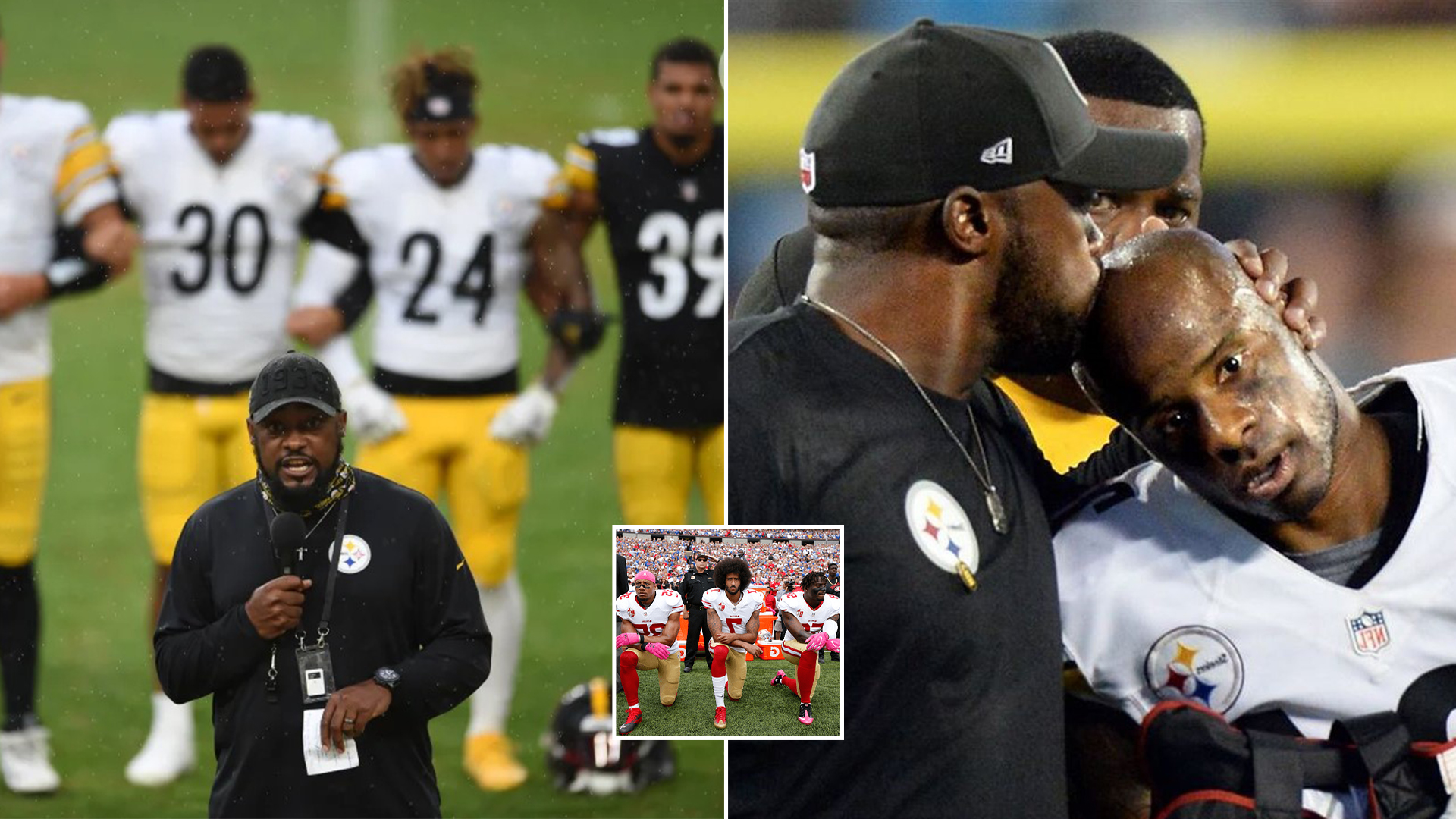In recent years, the topic of player protests during the national anthem has become a focal point of discussion in the NFL, igniting debates about race, social justice, and the role of athletes in activism. Central to this issue is Pittsburgh Steelers head coach Mike Tomlin, who has taken a firm stance on the matter. He recently made headlines by expressing his support for players who choose not to kneel during the anthem, emphasizing the importance of unity and focus within the team.
Tomlin’s comments come in the wake of a renewed national conversation about kneeling during the national anthem, a movement that gained traction in 2016 when former San Francisco 49ers quarterback Colin Kaepernick began his peaceful protest against racial injustice and police brutality. Kaepernick’s actions sparked a wave of protests throughout the league, with many players following his lead and kneeling, raising fists, or displaying other forms of dissent during the anthem. While these acts of protest were intended to raise awareness about systemic racism, they also drew significant backlash from fans, some team owners, and political figures.
The protests have often divided public opinion, with many supporters arguing that athletes have the right to use their platforms to advocate for social change. In contrast, opponents argue that kneeling during the anthem disrespects the flag and those who have served in the military. This cultural divide has put coaches like Tomlin in a challenging position, as they must navigate the expectations of their players, the desires of their fans, and the policies of the league itself.
In response to the ongoing controversy, Tomlin has made it clear that he stands behind players who do not kneel. His statement, “We stand behind every player who doesn’t kneel during the anthem,” reflects his commitment to team cohesion and a focus on football. Tomlin believes that the primary purpose of the team is to compete on the field, and any distractions from that mission can be detrimental to performance.
This approach aligns with the historical context of the Steelers franchise, which has built a reputation for strong leadership and a focus on teamwork. The Steelers, one of the most storied franchises in NFL history, have won six Super Bowl championships and have consistently been a competitive force in the league. Tomlin, who has been head coach since 2007, is known for his ability to manage diverse personalities and create a unified team environment. His stance on anthem protests indicates his desire to maintain that unity, particularly in an era where external issues can easily infiltrate the locker room.
The NFL has faced its own challenges regarding anthem protests, particularly following the controversial policies introduced in 2018. The league attempted to implement a rule requiring players to either stand during the anthem or remain in the locker room, but the backlash led to the policy being suspended. Since then, teams have had varying degrees of freedom to handle the situation as they see fit. Tomlin’s clear support for players who stand reinforces his commitment to allowing his team the autonomy to express their views without fear of reprisal.
Moreover, Tomlin’s leadership style emphasizes open communication and respect for individual players’ beliefs. By standing behind players who choose not to kneel, he fosters an environment where players feel safe to express themselves, whether that means standing for the anthem or advocating for social justice off the field. This approach can be crucial in building trust within the team and creating a strong bond among players.
As the 2024 NFL season progresses, it will be interesting to see how Tomlin’s stance influences the Steelers and whether it resonates with other teams in the league. The national dialogue around anthem protests is far from over, and with social issues continuously evolving, the role of athletes in addressing these matters remains critical. Tomlin’s commitment to supporting his players while focusing on football highlights the delicate balance that coaches must strike in today’s complex sports landscape. Ultimately, how teams respond to these protests will continue to shape the narrative around player activism and its place in professional sports.
NOTE: This Is SATIRE, It’s Not True
